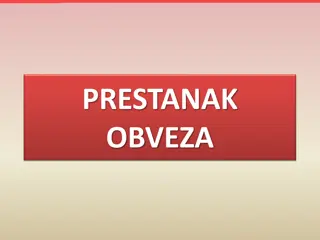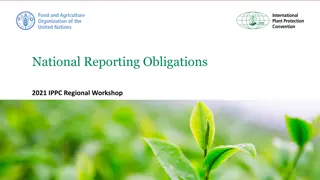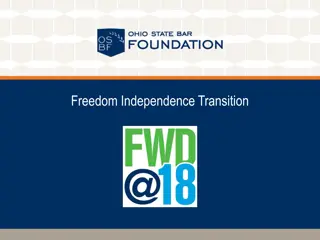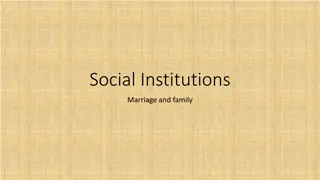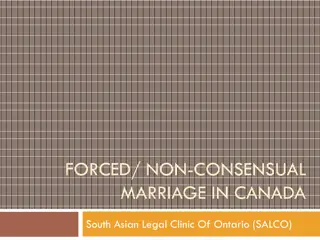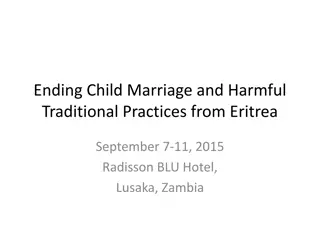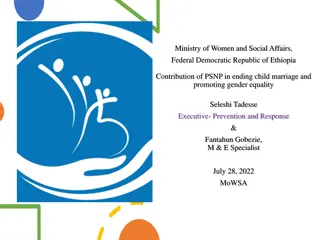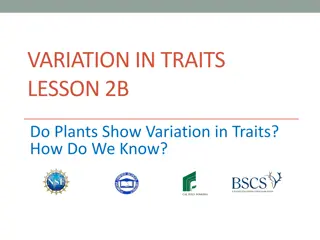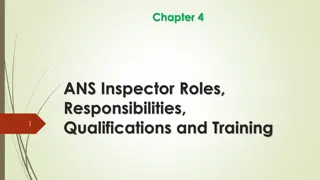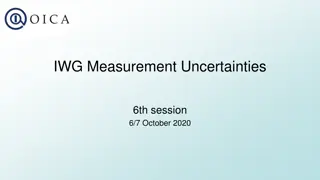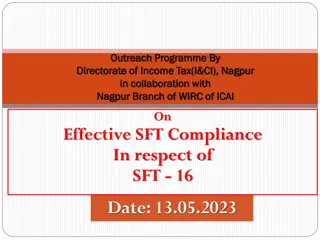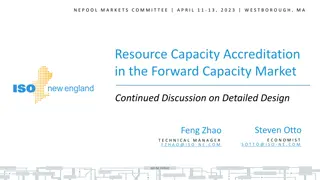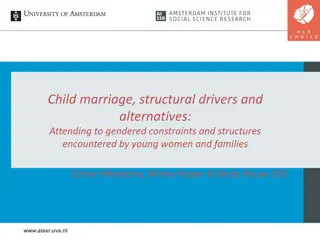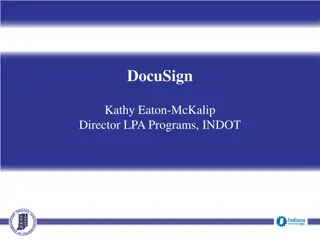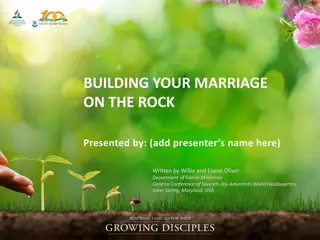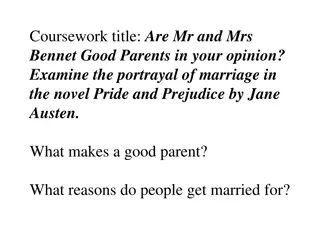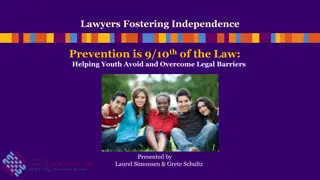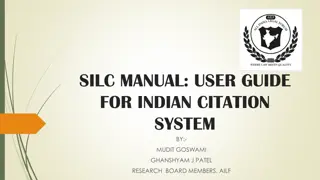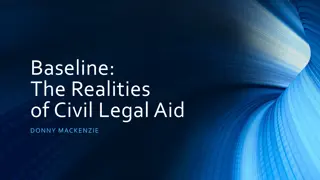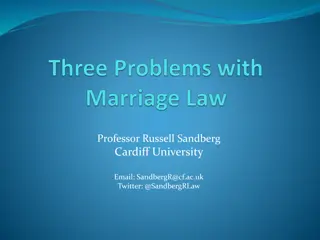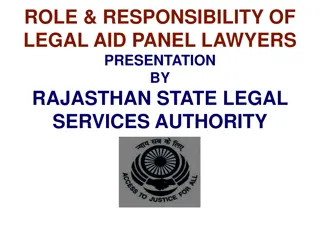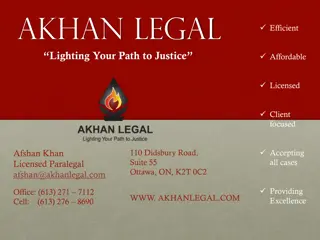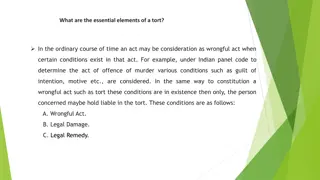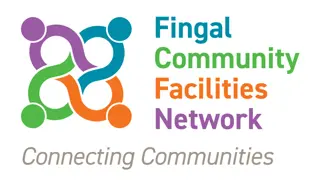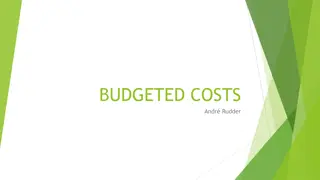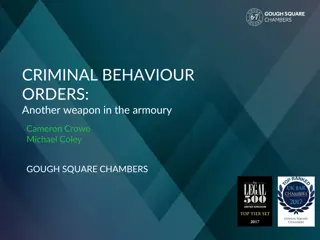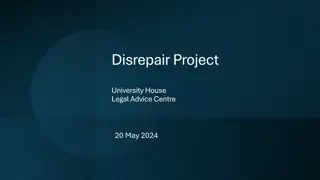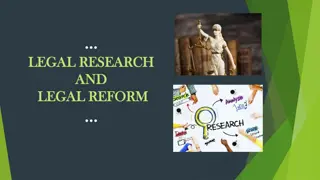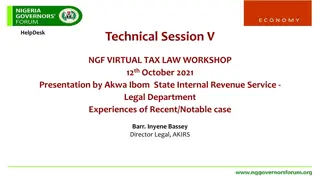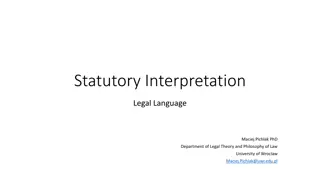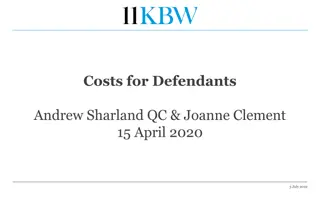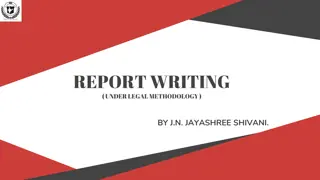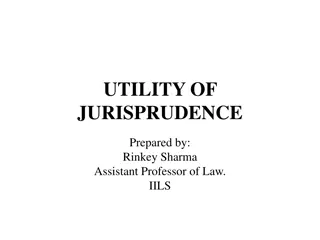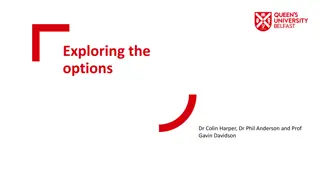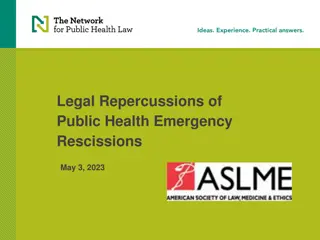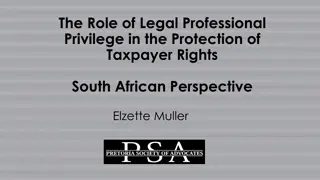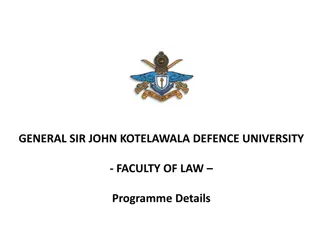Understanding Marriage: Definition, Variations, and Legal Obligations
Marriage is a socially and legally binding union between two individuals, exploring various cultural variations in marital arrangements such as minimum age, choice of partners, and number of spouses. Legal obligations for marriage in Ireland include age requirements, restrictions on existing marriages, and registration processes.
Download Presentation

Please find below an Image/Link to download the presentation.
The content on the website is provided AS IS for your information and personal use only. It may not be sold, licensed, or shared on other websites without obtaining consent from the author. Download presentation by click this link. If you encounter any issues during the download, it is possible that the publisher has removed the file from their server.
E N D
Presentation Transcript
Marriage Marriage (Marriage and society 3.1.5)
What you will learn What you will learn Definition of marriage Cultural variations in marital arrangements Legal obligations, rights and responsibilities within marriage
Definition of marriage Definition of marriage Marriage is a socially and legally binding union between two people who will live together and remain faithful to each other to the exclusion of all others. Some form of marriage exists in most societies throughout the world.
Cultural variations Cultural variations Minimum age Choice of partners Number of spouses
Minimum age Minimum age The minimum legal age for marriage in Ireland is 18 years. This is not a restriction in every society.
Choice of partners Choice of partners All societies place some form of restriction on the choice of marriage partner. Restrictions may be based on religion, class or close family relationship between the couple. In Ireland, restrictions are based on either consanguinity (blood relationship) or affinity (relationship by marriage).
Number of spouses Number of spouses Monogamy Being married to one person at a time Most common form of marriage In Ireland, most marriages are based on monogamy. Bigamy is a crime committed when an individual marries again while still legally married to someone else. Polygamy More than one partner is allowed Polygyny = a marriage between one male and several females Practised in many parts of Africa and in Islamic societies Symbol of a man s wealth and success Polyandry = marriage between one female and several males Rare limited to Tibet in China and parts of northern India Occurs in very poor cultures a number of working males are needed to support one wife and children.
Legal obligations for marriage in Ireland Legal obligations for marriage in Ireland Entered into voluntarily by both partners Both people must be over 18 years of age Neither person can be in an existing marriage Not closely related through blood or marriage Three months notice must be given to the registrar For a religious ceremony, the church also requires three months notice. Ceremony must take place in an approved location Marriage must be registered after the ceremony
Rights and responsibilities Rights and responsibilities To co-habit and to share each other s company. Sexual intimacy should be a feature of the marriage. The couple must remain faithful to each other. Spouses are the joint guardians of children born within the marriage and must provide for their needs and look after their welfare. A dependent spouse has a legal right to maintenance. Spouses have a legal right to inherit from each other.
Recap Recap Define marriage. What is the minimum legal age for marriage in Ireland? Distinguish between monogamy and polygamy. Outline some of the legal requirements for marriage. Describe some of the rights and responsibilities of marriage partners.
Exam focus Exam focus See the questions on page 329 of the textbook. See the Exam and Assignment Journal, pages 150 152.
What you will learn What you will learn Preparation for marriage: facilities and services available Marriage stability
Preparation for marriage Preparation for marriage Preparation for marriage occurs: At home At school At pre-marriage courses
Pre Pre- -marriage courses marriage courses Run by: Accord Catholic Marriage Care Service Other non-denominational organisations, e.g.____________________________.
Topics covered at pre Topics covered at pre- -marriage courses marriage courses Communication Family planning Parenthood Role expectations Finance Potential problem issues, e.g. alcohol, gambling
Advantages of pre Advantages of pre- -marriage courses marriage courses Couples communicate and share their feelings. Couples are forced to face reality on issues such as finances and housing. Couples become more aware of potential problem areas they may have been ignoring, e.g. a drink problem or violence. Couples discuss each other s personal qualities with emphasis on the positive areas and discuss how to deal with negative qualities.
Marital stability Marital stability The strength of a relationship is influenced by: Expectations of marriage: Must be realistic or can become disillusioned. Family background: Influences role expectations and whether one has positive or negative views of marriage. Age: Need to be mature enough to take on responsibilities. Similar culture and interests: For example, couples from a similar background may share beliefs and expectations, resulting in less friction. Social factors: For example, financial problems and alcohol abuse put a strain on marriage.
Marriage counselling Marriage counselling Provided by: Accord MyMind Centre for Mental Wellbeing Functions: Helps couples resolve marital problems before they become grounds for separation or divorce Refers them to experts, e.g. Money Advice and Budgeting Service (MABS), Alcoholics Anonymous (AA)
Marriage counselling Marriage counselling Marriage counselling may not be successful if: Only one partner seeks counselling Problems are too far advanced The problem is so serious that separation is the only solution, e.g. child abuse
Recap Recap What topics are discussed at pre-marriage courses? Outline the benefits of completing a pre-marriage course. Describe some factors that influence the stability of a marriage. How might counselling help couples who are experiencing marital difficulties?
Exam focus Exam focus See the question on page 330 of your textbook. See the Exam and Assignment Journal, pages 150 152.
What you will learn What you will learn Marriage breakdown The choices available when a marriage has broken down The effects of marital breakdown
Marital breakdown Marital breakdown Marital breakdown is increasing in Irish society due to the following: Separation and divorce are more socially acceptable. Acquiring a divorce has become easier and less expensive. Women are more likely to be financially independent. State assistance is available for lone parents.
Family Mediation Service Family Mediation Service A free, state-run service through the Legal Aid Board. Helps couples to negotiate a separation agreement. Couples meets in the presence of an impartial mediator. They make decisions on children, finances and property.
Family mediation Family mediation Advantages: Helps to reduce conflict between partners Enables couples to make their own decisions Helps the people involved to come to terms with the reality of separation Encourages a spirit of co-operation and responsibility between partners, especially in relation to children
Legal separation Legal separation Separation agreement Judicial separation Decisions agreed by the couple in mediation are drawn up in a deed of separation by a solicitor. A judicial separation is a separation granted by the court as a decree of separation (under the Judicial Separation and Family Law Reform Act, 1989) if a couple cannot reach a separation agreement or if only one spouse wishes to separate.
Deed of separation Deed of separation A deed of separation includes: An agreement to live apart and not to interfere with each other Arrangements regarding the care of children Amount of maintenance to be paid Arrangements regarding ownership and occupation of the family home Arrangements regarding rights of spouses to inherit from each other
Grounds for judicial separation Grounds for judicial separation Adultery Desertion Unreasonable behaviour, such as _________________ No normal marriage relationship for a least one year Spouses living apart for one year before application (where both consent to separation) or living apart for three years where one spouse does not give consent
Nullity of a marriage Nullity of a marriage Legal annulment A decree of nullity issued by the court means that in the eyes of the state, the marriage never existed. Partners are free to marry. Church annulment This type of annulment has no legal standing but is needed in order to remarry in a church. When a person remarries within a church, the state will not recognise the marriage unless a decree of divorce or a decree of nullity was granted in respect of the first marriage.
Grounds for nullity Grounds for nullity Lack of capacity, e.g. _________________ Non-observance of certain formalities, e.g. ___________________ Absence of consent, e.g. _________________ Inability to form and sustain a marital relationship, e.g. _________________
Divorce Divorce Under the Family Law (Divorce) Act, 1996, a spouse who wishes to end an existing legal marriage can make an application to the court for a decree of divorce. A solicitor must inform the applicant about available counselling and mediation services.
Grounds for divorce Grounds for divorce Spouses have lived apart for at least two of the previous three years. There is no prospect of reconciliation. The court may make orders to cover maintenance, child custody and access, property, maintenance and, if necessary, safety or barring orders. A decree of divorce gives spouses a right to remarry.
Effects of marital breakdown on spouses Effects of marital breakdown on spouses A sense of failure, rejection or guilt. May feel lonely, isolated and depressed and may resort to drink or drugs. May suffer financial loss and a fall in living standards. One spouse gains custody of the children and may assume full responsibility for their upbringing. Future relationships may be difficult because they often do not have legal recognition.
Effects of marital breakdown on children Effects of marital breakdown on children May experience emotional or physical violence during the breakdown period. May feel responsible for the break-up and a sense of guilt and insecurity. Can be used for emotional blackmail during the breakdown. The loss of a parent results in the lack of a mother or father figure. May be left with negative views of marriage and may have difficulties forming stable relationships in later life. May be upset by a drop in living standards or a change of home.
Effects of marital breakdown on society Effects of marital breakdown on society Undermines the family, which is the basic unit of Irish society, leading to more one-parent families and blended families. The family may become dependent on the state for financial support. Results in a greater need for accommodation/housing. Traumatised children of a broken marriage may resort to aggression, vandalism and violence. Future relationships involving children can be legally complicated.
Recap Recap Explain why marriage breakdown is increasing. Outline the function of the Family Mediation Service. What factors are covered in a deed of separation? Distinguish between a church annulment and a state annulment. How does divorce differ from separation? Describe the effects of marital breakdown on (a) spouses (b) children (c) society.
Exam focus Exam focus See the questions on page 333, page 334 and page 335 in the textbook. See the Exam and Assignment Journal, pages 150 152.


